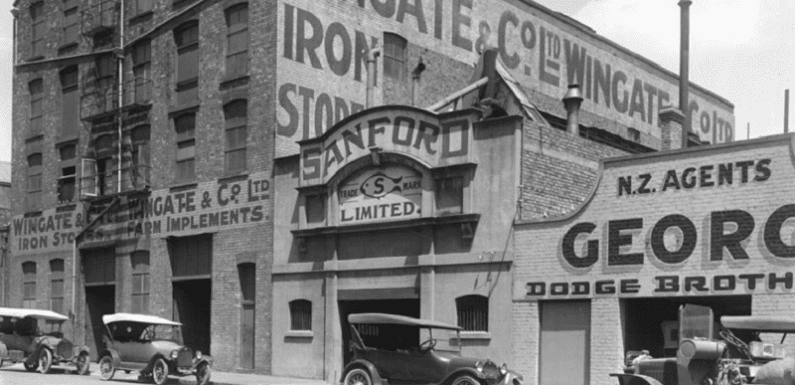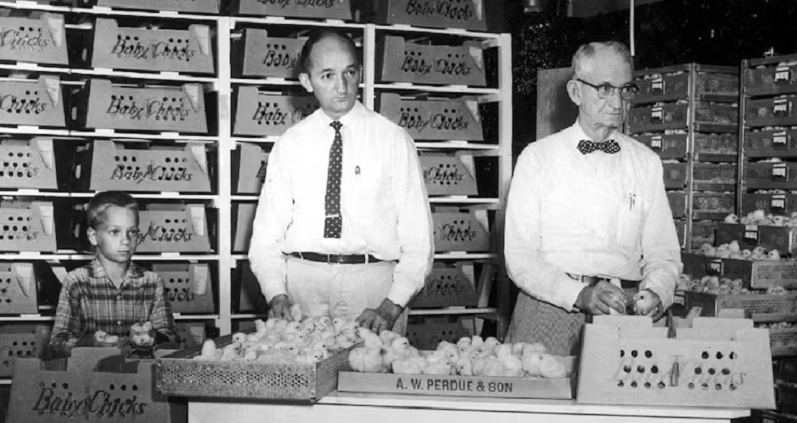
Family-owned businesses have long been a cornerstone of economies around the world, influencing societies and shaping industries for generations. These enterprises, often passed down through families, hold unique histories that reflect both the evolution of commerce and the personal stories of those who built them. Here we explore the rich history of family-owned businesses, from their ancient origins to their modern-day significance. By examining notable examples and understanding the dynamics within these enterprises, we can appreciate the enduring legacy and the crucial role they play in today’s economic landscape.
Origins and Evolution of Family-Owned Businesses
Family-owned businesses have a long and storied history, with roots stretching back to ancient times. These enterprises have evolved through various economic eras, adapting to changing conditions and continuing to play a crucial role in the global economy.
Early Examples Of Family Businesses
Family businesses have been a part of human society since the earliest civilizations. These early enterprises often centered around agriculture, trade, and craftsmanship, forming the backbone of local economies.
Ancient Civilizations
In ancient civilizations such as Egypt, Mesopotamia, and China, family businesses were commonplace. Families worked together in agriculture, weaving, pottery, and other trades, passing skills and knowledge down through generations. These businesses were vital for community sustenance and growth.
Medieval Guilds And Trades
During the medieval period, family businesses were often organized within guilds. Guilds were associations of artisans or merchants who controlled the practice of their craft in a particular town. Many of these guilds were dominated by families who passed their trades from one generation to the next. This period saw the formalization of family businesses and the establishment of long-lasting family legacies in various trades.
Evolution Through The Ages
As societies progressed, so did family-owned businesses. Each historical period brought new challenges and opportunities, shaping the way these businesses operated and thrived.
Renaissance Period
The Renaissance period marked a significant evolution for family businesses. With the revival of arts, culture, and commerce, families like the Medici in Italy expanded their businesses into banking, arts patronage, and political influence. This era highlighted the potential for family businesses to grow beyond local markets and become influential entities in broader society.
Industrial Revolution
The Industrial Revolution was a transformative time for family-owned businesses. The shift from agrarian economies to industrial production allowed many family enterprises to scale up their operations. Families invested in factories, mechanization, and new technologies, laying the foundation for modern industrial giants. This period saw the rise of notable family businesses that continue to influence industries today.
Modern Era
In the modern era, family-owned businesses have adapted to globalization, technological advancements, and changing consumer preferences. They have diversified their portfolios, entered new markets, and embraced innovation to stay competitive. Today, family businesses range from small local shops to multinational corporations, each with a unique history and set of values rooted in their family heritage [1].

Notable Family-Owned Businesses Through History
Throughout history, certain family-owned businesses have stood out due to their remarkable achievements and lasting impact. These enterprises have not only shaped industries but also influenced economic and cultural developments across the globe.
Historic Examples
Many historic family-owned businesses have left an indelible mark on history. These businesses often started small and grew into influential entities through generations of family leadership and innovation.
The Medici Bank (Italy)
The Medici Bank, founded in the late 14th century by Giovanni di Bicci de’ Medici, became one of the most powerful and respected financial institutions in Europe. The Medici family used their wealth and influence to support arts and culture, playing a pivotal role in the Renaissance. Their banking practices set new standards for financial management and contributed significantly to the economic development of Italy and beyond.
Mitsui & Co. (Japan)
Founded in the early 17th century, Mitsui & Co. started as a modest kimono shop in Edo (now Tokyo) by Mitsui Takatoshi. Over the centuries, the Mitsui family diversified their business into various sectors, including finance, mining, and international trade. Mitsui & Co. became a cornerstone of Japan’s economic modernization, with the Mitsui family continuing to influence Japanese industry and commerce.
Modern Examples
In the modern era, several family-owned businesses have grown into global giants, maintaining their family roots while achieving international success. These businesses exemplify the enduring strength and adaptability of family enterprises [2].
Walmart (USA)
Founded by Sam Walton in 1962, Walmart started as a single discount store in Rogers, Arkansas. Today, Walmart is the world’s largest retailer, with thousands of stores across the globe. The Walton family has maintained significant control over the company, with family members actively involved in its management and governance. Walmart’s success story highlights the potential of family-owned businesses to achieve extraordinary growth and impact.
Tata Group (India)
Established by Jamsetji Tata in 1868, Tata Group began as a trading company in Bombay (now Mumbai). Over the years, the Tata family expanded the business into diverse industries, including steel, automobiles, telecommunications, and hospitality. Tata Group is now one of India’s largest and most respected conglomerates, known for its commitment to innovation, social responsibility, and ethical business practices.
Samsung (South Korea)
Samsung was founded in 1938 by Lee Byung-chul as a trading company. Under the leadership of the Lee family, Samsung diversified into electronics, shipbuilding, construction, and more. Today, Samsung is a global leader in technology and electronics, renowned for its innovation and cutting-edge products. The family’s vision and leadership have been key factors in Samsung’s rise to prominence on the world stage.
The Role of Family in Business Operations
Family-owned businesses are unique in that family dynamics often play a significant role in their operations. The involvement of family members can influence everything from leadership and decision-making to the overall vision and culture of the business.
Family Dynamics And Business Management
The interplay between family relationships and business management can shape the direction and success of a family-owned enterprise. These dynamics can either strengthen the business through close-knit collaboration or pose challenges due to conflicts and differing viewpoints.
Leadership And Succession
Leadership in family-owned businesses often stays within the family, with roles passed down through generations. Succession planning becomes a critical aspect of business continuity. Successful transitions typically involve preparing the next generation through education and mentoring, ensuring they are ready to take on leadership roles. This process helps maintain the family’s vision and values within the business [3].
Decision-Making Processes
Decision-making in family businesses can be influenced by familial bonds and trust. Decisions may be made collaboratively, with input from multiple family members, which can lead to a more cohesive strategy. However, it can also result in conflicts if there are disagreements among family members. Clear communication and defined roles are essential to navigate these challenges and make effective decisions.
Benefits Of Family Involvement
Having family members involved in the business can offer several advantages. The strong personal commitment and shared goals often found in family enterprises can drive long-term success and stability.
Trust And Loyalty
Family members typically have a high level of trust and loyalty towards one another, which can enhance teamwork and collaboration within the business. This trust can lead to more effective and efficient operations, as family members are more likely to support each other and work towards common objectives.
Long-Term Vision And Stability
Family-owned businesses often focus on long-term goals rather than short-term gains. This perspective allows for more sustainable growth and the ability to weather economic fluctuations. The commitment to maintaining the family legacy can drive a dedication to quality and continuous improvement.
Challenges Faced By Family Businesses
Despite the many benefits, family-owned businesses also face unique challenges. Balancing personal relationships with business demands can create complex situations that require careful management.
Conflicts And Rivalries
Conflicts and rivalries can arise when family members have differing opinions or compete for leadership roles. These disputes can be detrimental to the business if not managed effectively. Establishing clear boundaries, open communication, and conflict resolution mechanisms are essential to mitigate these issues.
Balancing Tradition And Innovation
Family businesses often have a strong sense of tradition, which can be both a strength and a limitation. While tradition provides a solid foundation, it can also hinder innovation if family members are resistant to change. Finding a balance between preserving the core values and embracing new ideas is crucial for continued success and relevance in a changing market [4].
Genealogical Research in Family Business History
Understanding the history of family-owned businesses can provide valuable insights into their evolution, resilience, and impact. Genealogical research plays a crucial role in uncovering these histories, offering a comprehensive view of the family’s contributions and legacy.
Importance Of Tracing Business Lineages
Tracing the lineage of a family-owned business helps to connect the present with the past. It allows current generations to understand their heritage, the values that shaped the business, and the challenges their ancestors overcame. This knowledge can inspire pride and a sense of responsibility to uphold the family’s legacy.
Resources For Researching Family Businesses
Several resources are available to assist in the research of family business histories. These resources provide the information needed to construct a detailed and accurate account of the family’s business activities over time.
Historical Records And Archives
Historical records and archives are fundamental sources for genealogical research. Business records, government documents, newspapers, and trade publications can reveal critical details about the establishment, growth, and operations of family-owned businesses. These records often include financial statements, legal documents, and correspondence that shed light on the business’s historical context.
Oral Histories And Family Documents
Oral histories and family documents are invaluable for capturing personal stories and experiences that are not documented elsewhere. Interviews with family members, diaries, letters, and family photos can provide rich, detailed accounts of the family’s business activities and the personal relationships that influenced them. These narratives add depth and context to the factual information found in official records.
Online Databases And Tools
Online databases and genealogical tools have made researching family business histories more accessible than ever. Websites like Ancestry.com, FamilySearch.org, and specialized business history databases offer a wealth of information that can be searched and cross-referenced. These platforms often provide access to digitized records, historical documents, and user-contributed family trees, facilitating comprehensive research.
Methods For Documenting And Preserving Business Histories
Documenting and preserving the history of a family-owned business ensures that future generations have access to this valuable information. Various methods can be employed to compile and maintain these records effectively.
Creating Family Business Histories
Compiling a written history of the family business is an effective way to document its evolution and achievements. This history can include a narrative account, timelines, and profiles of key family members and their contributions. Photographs, documents, and artifacts can be incorporated to create a rich and engaging record.
Maintaining Archives And Digital Records
Maintaining organized archives and digital records helps preserve the family business history for future reference. Physical documents should be stored in a safe, climate-controlled environment, while digital records should be backed up and secured. Creating a digital archive allows for easy access and sharing among family members and researchers.
Sharing And Educating
Sharing the family business history with both family members and the public can enhance appreciation and understanding of its significance. This can be done through family gatherings, publications, websites, and presentations. Educating the younger generation about their heritage helps instill a sense of pride and continuity, encouraging them to contribute to the ongoing legacy.
References
[1] The History of Family Business, 1850-2000
[2] The Past, Present And Future Of Family Business
[3] Family Business: The Dominant and Oldest Sustainable Business
[4] Family Business In Historical Perspective : An Interdisciplinary Conversation
